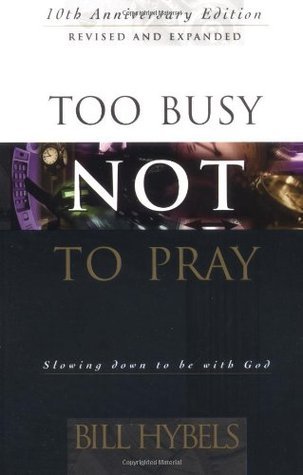
The Ruthless Elimination of Hurry: How to Stay Emotionally Healthy and Spiritually Alive in the Chaos of the Modern World
Book Description
Amid the relentless pace of modern life, where chaos reigns and weariness grips the soul, comes a revolutionary call for a slower, richer existence. John Mark Comer invites a daring exploration into the frantic depths of hurry that suffocate our emotional health and spiritual vibrancy. With striking insights and practical strategies, this book becomes a lifeline, urging a radical shift towards peace and fulfillment. As the world spins faster, will you dare to embrace the power of stillness to reclaim your life? The journey to emotional wellness and spiritual renewal awaits—are you ready to take the plunge?
Quick Book Summary
"The Ruthless Elimination of Hurry" by John Mark Comer addresses the pervasive issue of busyness and hurry in contemporary life, especially how it undermines emotional and spiritual well-being. Drawing from personal experiences, spiritual wisdom, and biblical principles, Comer argues that relentless hurry is at the root of much of our modern malaise. He offers both a critique of our addicted-to-activity culture and a practical guide toward a slower, more intentional way of living. Through ancient practices like Sabbath, silence, solitude, and simplicity, Comer urges readers to reclaim spiritual vibrancy and emotional health by resisting the cultural tide of busyness. Ultimately, his message is a timely call to embrace rest and mindful living in pursuit of a deeper walk with God.
Summary of Key Ideas
Table of Contents
Recognizing the Dangers of a Hurried Life
Comer opens by diagnosing the modern epidemic of hurry, identifying it as a spiritual and emotional sickness prevalent in Western culture. He shares personal anecdotes of burnout and disconnection, noting that society often equates busyness with success. This misplaced value system leaves individuals weary and spiritually depleted. By framing hurry as incompatible with Christian living, Comer sets the stage for a countercultural response rooted in the teachings and lifestyle of Jesus.
Spiritual Practices for Slowing Down
Central to Comer's solution are the ancient spiritual disciplines of silence, solitude, and Sabbath—all of which help slow the frenetic pace of life. He explains how Jesus modeled these rhythms, frequently withdrawing from crowds for prayer and reflection. Comer explores how these practices nurture stillness and rest, which in turn foster emotional health and deeper spiritual awareness. Practical guidance encourages readers to intentionally carve out time for these disciplines amid everyday demands.
Rediscovering Sabbath and Rest
A significant section is devoted to the practice of Sabbath rest, which Comer argues is not merely an Old Testament law but a vital gift for a hurried generation. He advocates for reclaiming Sabbath as a time of worship, joy, and restoration rather than merely another obligation. By setting aside technology and work, individuals can refresh and reconnect with God, themselves, and loved ones, rediscovering a sacred rhythm that counters the culture of constant doing.
Cultivating Simplicity and Presence
Comer also challenges readers to embrace simplicity by intentionally decluttering both schedules and possessions. He warns against the trap of materialism and overscheduling, describing how a focus on "less but better" brings clarity and freedom. Living simply fosters presence—the ability to be fully engaged in the moment, attentive to God and to others. This intentionality is essential for cultivating depth in emotional and spiritual life.
Aligning Life with the Way of Jesus
Finally, Comer rallies readers to align their lives with the "way of Jesus," whose approach to time and relationships stands in stark contrast to societal norms. He insists that spiritual health is not just about beliefs but about how one lives daily life—choosing margin, rest, and love over hurry and distraction. Through intentional practices and community support, the book offers a hopeful blueprint for lasting change, encouraging a life marked by peace, meaning, and connection.
Download This Summary
Get a free PDF of this summary instantly — no email required.





